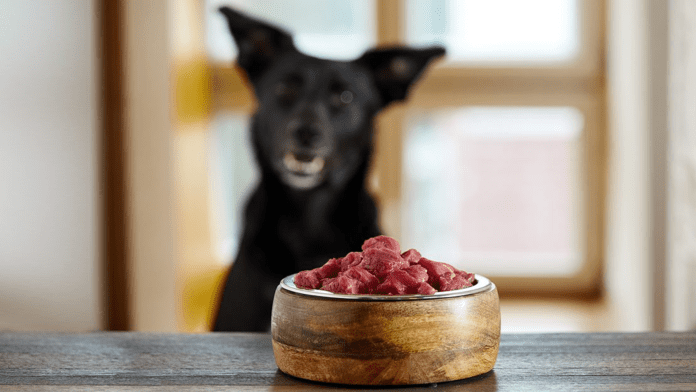As a pet owner, it’s natural to want the best for our furry companions. Feeding our dogs a balanced and healthy diet is a crucial part of responsible pet ownership. However, a growing trend of feeding dogs raw or undercooked meat has raised significant concerns among veterinary professionals. While some proponents of this feeding practice claim it provides numerous health benefits, veterinarians are horrified by the potential risks it poses to our beloved pets. This article aims to shed light on the alarming reasons why feeding dogs raw or undercooked meat is a dangerous practice and how you can protect your furry friend’s well-being.
1. Bacterial Contamination:
Raw and undercooked meat can harbor harmful bacteria such as Salmonella, E. coli, and Campylobacter. These pathogens can cause severe gastrointestinal distress in dogs, leading to symptoms like vomiting, diarrhea, and dehydration. Moreover, these bacteria can pose a risk to human health as well, especially if pet owners come into contact with contaminated dog feces or surfaces. This contamination is particularly concerning in households with vulnerable individuals, such as the elderly, young children, or immunocompromised individuals.
2. Nutritional Imbalance:
Contrary to popular belief, feeding dogs a diet solely composed of raw or undercooked meat does not ensure a well-balanced nutrition. Dogs require a diverse array of nutrients, including carbohydrates, fats, vitamins, and minerals, which may not be adequately provided through an exclusive meat diet. Over time, such imbalances can lead to nutritional deficiencies, negatively impacting the dog’s overall health and longevity.
3. Bones and Choking Hazards:
Raw meat often contains bones, which can splinter and pose a severe choking hazard to dogs. Additionally, bones can cause gastrointestinal obstructions or lacerations, requiring emergency veterinary intervention. Feeding cooked bones is equally dangerous, as cooking makes bones brittle and more likely to splinter when chewed, increasing the risk of injury.
4. Parasite Infestations:
Raw or undercooked meat may contain parasites such as Toxoplasma gondii and Trichinella spiralis, which can infect dogs and cause serious health issues. These parasites can lead to toxoplasmosis, trichinellosis, and other parasitic infections that may require prolonged and costly treatments.
5. Antibiotic Resistance:
The use of antibiotics in livestock farming can lead to the development of antibiotic-resistant bacteria. Feeding raw or undercooked meat from such sources to dogs can expose them to these resistant bacteria, making it difficult to treat bacterial infections when they occur.
6. Dental Health Concerns:
A diet solely based on raw or undercooked meat does not provide adequate dental benefits for dogs. Chewing on raw bones might help clean their teeth to some extent, but it also comes with the risk of dental fractures or injuries. Proper dental care, such as regular brushing and dental treats, is essential for maintaining a dog’s oral health.
7. Zoonotic Diseases:
Feeding dogs raw or undercooked meat can expose humans to zoonotic diseases, which are infections that can be transmitted from animals to humans. As mentioned earlier, pathogens like Salmonella and E. coli can be present in raw meat and can infect both dogs and their owners, causing severe illness.
Final Thoughts:
The alarming reasons discussed above illustrate the dangers associated with feeding dogs raw or undercooked meat. While some proponents claim that this diet is more natural and healthier for dogs, veterinary professionals strongly advise against it due to the potential risks to both canine and human health. Instead, a balanced diet consisting of high-quality commercial dog food or veterinarian-approved homemade meals is the safest and most appropriate way to ensure your furry friend receives all the necessary nutrients.
As responsible pet owners, it is our duty to prioritize our dogs’ well-being and make informed decisions about their nutrition. Always consult your veterinarian before making significant changes to your dog’s diet and follow their recommendations to safeguard your beloved companion’s health. By doing so, you can protect your furry friend from potential harm and provide them with the best chance for a happy, healthy, and long life together.





